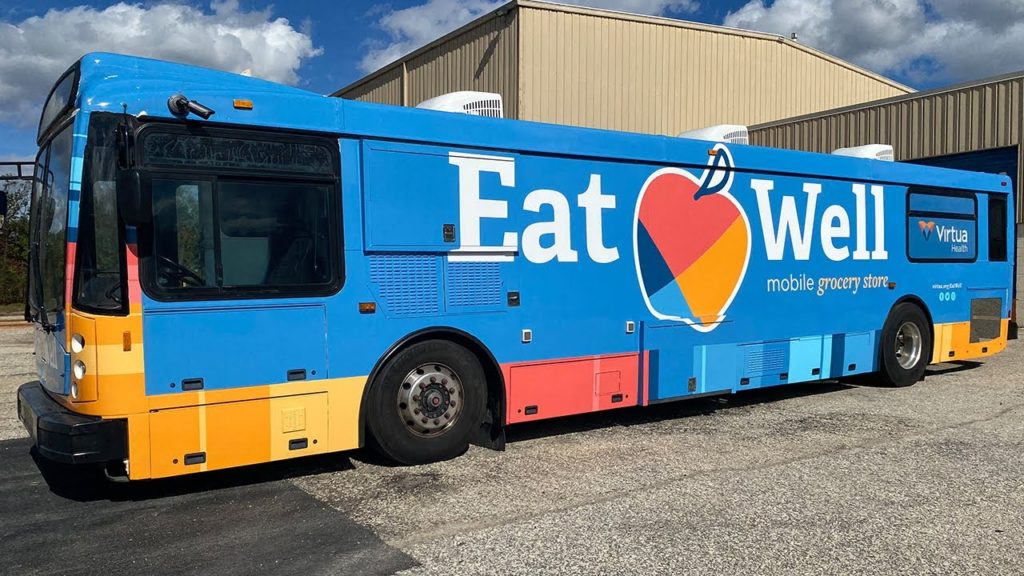
Ryan Younger, VP of Marketing, Virtua Health
Virtua Health’s mission is to “help you be well, get well and stay well.” As the largest not-for-profit health system in the region (southern New Jersey), we don’t just take care of patients who come to us with an acute health issue. Rather, we want to help people who are healthy stay healthy, and we want to connect with them beyond when they come in for clinical appointments.
Now that the focus is where it should be – managing a person’s healthcare holistically, and not just when they have a need – and that is a culture shift for many health systems. Across all levels of the organization, we need to take a cue from consumer brands, like Netflix and Amazon, and identify strategies and tactics that facilitate a lifestyle connection with our patients and communities.
People’s Habits – And Expectations – Are Changing
It’s no secret that life is different today than it was a decade ago. We are shopping online more than ever before, ordering delivery from our favorite restaurant in an app and having groceries dropped off on our front porch. It seems like our lives are becoming more and more digitized each day. And that’s spilling over to healthcare.
Millennials and Gen Z have higher digital expectations and are more active consumers of information online, and expect the same consumer-focused convenience from healthcare. In fact, only 66% of Millennials have a primary care provider, as compared to 78% of Gen X and 85% of Baby Boomers, and they are twice as likely as Boomers to use telemedicine and three times as likely to use wearable technology.
People are demanding change. According to research commissioned by Actium Health, patients have higher expectations of their doctors since the pandemic, with 25% saying their opinion of their providers has changed. More than 40% would like general health and wellness guidance as well as scheduling options for preventive screenings. In fact, the majority of respondents said what while they receive messages from retail brands more often, they would prefer relevant healthcare messages instead.
In addition to people’s expectations, the digital health market is booming. Technology companies continue to enter the space, including big names like Apple and Google that have nailed the consumer experience.
Health systems can’t take a backseat to these shifts; we need to recognize the opportunity in front of us to meet our mission of helping our communities be – and stay – well.

Proactive = More Effective Care
The COVID-19 pandemic changed and upended life as we know it. But, when it comes to proactive and preventive care, the scope of the damage is still being quantified. A recent report from the American Association for Cancer Research was the first to look at the widespread – and significant – impact the delays in screenings have had. They found that there were nearly 10 million missed cancer screenings from January through July 2020, and an 11% increase in patients diagnosed with inoperable or metastatic cancer March 2020-December 2020 (compared with the same period in 2019).
The pandemic provided us an unwelcome case study in what outcomes look like when we don’t (or can’t) prioritize preventive health measures.
At Virtua, we recognized there was a widening gap in the people who should be coming in for preventive care, such as cancer screenings. And, when we looked out across our population, we saw a need to begin with breast cancer. Starting in August 2020, we began a 4-month AI-driven marketing campaign targeted to women at high-risk for breast cancer, with the goal of getting them in for a mammogram. The end result was 11,000 appointments and nearly 1,400 diagnoses. Given that this was still in the early stages of the pandemic, those are people that likely may have stayed away if it wasn’t for the targeted outreach we did in support of the important work our clinicians led.
Paving a Path Towards a Proactive Culture
Now, health systems have to cultivate an even more proactive culture across the organization. And, it begins with getting the right people on board.
At Virtua, we have an aligned senior leadership team that sets the vision. We have three guiding strategic goals, the first of which is ‘orienting to the consumer.’ That allows everyone across the organization to easily understand and align the work they’re doing to a very clear set of directives.
In marketing, we continue to build relationships and alliances in clinical and other areas of the organization, so we can ensure everything we do not only drives growth, but helps support clinical’s goal of driving better and improved health outcomes. Tactically, we leverage multiple channels to communicate with our community; we don’t wait on them to come to us with a health problem. One way we do that is through our partnership with Actium Health, which allows us to better understand our patient base, so we can activate individuals with personalized messages. If we can influence them to take action, earlier, then perhaps we can (hopefully) prevent an acute episode.
With the right people on board, data to demonstrate what is working, and the insight behind the strategies and tactics, a shift towards a more consumer-centric, proactive culture is not only possible, but a natural evolution, and will lead to a more engaged, loyal and healthier patient population.
To learn more about how Virtua Health partnered with Actium to identify patients 15 times more likely to have breast cancer and deliver targeted, proactive, outreach strategies, read the case study: Prioritized Breast-Cancer Screening Outreach Impacts 1,395 Lives.


